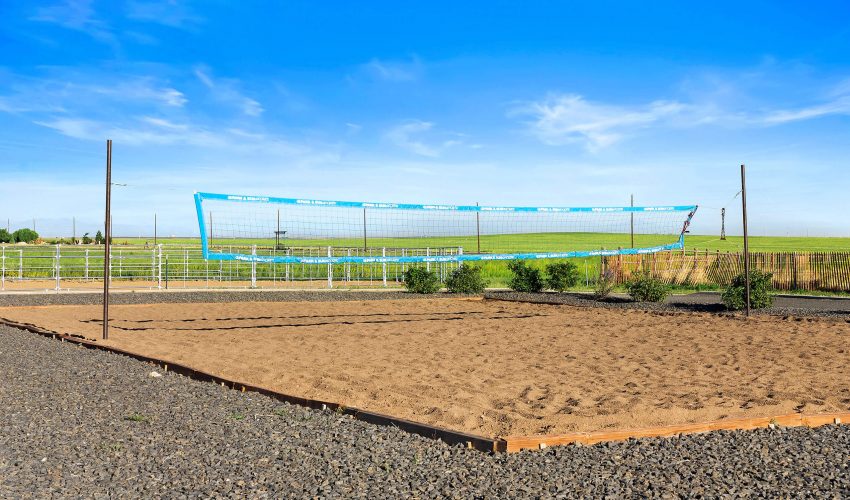Post-Traumatic Stress Disorder (PTSD) affects millions, disrupting daily life and well-being after experiencing or witnessing traumatic events.
At The Raleigh House, we offer compassionate, evidence-based PTSD treatment tailored to support recovery and healing. Our integrated approach addresses both the mental and physical impacts of trauma while providing long-term recovery solutions.
To learn more about PTSD treatment options, contact our admissions team or continue reading.

What is PTSD?
Post-traumatic stress disorder is a mental health condition that occurs when the mind and body struggle to recover after experiencing or witnessing a traumatic event.
PTSD affects how individuals process fear, stress, and memories, often causing ongoing emotional and physical distress long after the traumatic experience has ended.
PTSD is not just a temporary response to stress; it’s a serious condition that can disrupt daily life, relationships, and overall well-being.
Unlike typical stress reactions that fade with time, PTSD symptoms persist and may intensify, making it difficult for individuals to feel safe, trust others, or engage in everyday activities.
How PTSD Develops and Affects Mental Health
PTSD affects how the brain processes stress and fear. It can alter brain function, leading to emotional numbness, hyperarousal, and difficulty concentrating. These symptoms can disrupt relationships, careers, and overall well-being without treatment.
Prevalence of PTSD in the General Population
According to the National Institute of Mental Health, PTSD affects approximately 3.5% of adults in the United States each year.
While anyone can develop PTSD, it is more common among individuals who have experienced or witnessed traumatic events. This includes first responders, veterans, and those who have survived abuse, violence, or serious accidents.
Common Symptoms of PTSD
Recognizing the signs of PTSD is crucial for seeking timely care. Symptoms can include:
- Intrusive memories or flashbacks
- Nightmares and sleep disturbances
- Avoidance of reminders of the trauma
- Negative thoughts and emotional numbness
- Irritability, anger, or aggressive behavior
- Heightened anxiety and hypervigilance
- Difficulty concentrating and memory issues
Types of Post-Traumatic Stress Disorder
PTSD presents in various forms, depending on the nature of the trauma, how symptoms develop, and how individuals respond over time.
Understanding these types is essential for determining the most effective treatment approach.
Explore the different types of PTSD below.
Complex PTSD
Arising from prolonged or repeated trauma, such as ongoing abuse or captivity, complex PTSD includes the typical symptoms of PTSD along with challenges related to self-esteem, emotional regulation, and relationships.
Acute Stress Disorder (ASD)
ASD occurs within the first month following a traumatic event and shares similar symptoms with PTSD. If left untreated, ASD can develop into long-term PTSD, making early intervention critical.
Delayed-Onset PTSD
This form of PTSD emerges six months or more after the traumatic event. Delayed-onset PTSD may arise due to new stressors or triggers that bring unresolved trauma to the surface.
Dissociative PTSD
Dissociative PTSD includes symptoms such as depersonalization (feeling disconnected from oneself) and derealization (feeling detached from reality). It often occurs when the mind attempts to block out overwhelming trauma.
Combat-Related PTSD
Common among military veterans and active-duty personnel, combat-related PTSD results from the stresses and traumas of war, including exposure to life-threatening situations and loss of comrades.
Natural Disaster-Related PTSD
Experiencing or witnessing natural disasters such as earthquakes, hurricanes, or fires can lead to PTSD. Symptoms often involve heightened anxiety, fear of recurrence, and avoidance behaviors related to the traumatic event.
At The Raleigh House, we recognize that each type of PTSD requires tailored care. Our evidence-based therapies and holistic healing programs are designed to address the specific challenges associated with each form of PTSD, guiding clients toward lasting recovery.
Risk Factors for Developing PTSD
Certain factors may increase the likelihood of developing PTSD after trauma:
History of Trauma and Abuse
Previous traumatic experiences, especially during childhood, can heighten vulnerability to PTSD.
Pre-existing Mental Health Conditions
Conditions such as anxiety, depression, or substance use disorders may increase the risk of developing PTSD.
Lack of Support and Social Resources
Limited access to emotional support can make it more challenging to recover from traumatic experiences.
What’s Involved in the Diagnosis of PTSD?
Diagnosing PTSD requires a comprehensive evaluation by a mental health professional to understand the trauma’s impact and determine the best treatment approach.
Key Steps in PTSD Diagnosis:
- Clinical Assessment: In-depth interviews explore symptoms, trauma history, and daily functioning.
- DSM-5 Criteria: Diagnosis requires symptoms such as intrusive memories, avoidance behaviors, mood changes, and hyperarousal lasting more than one month.
- Symptom Duration: PTSD is diagnosed when symptoms persist beyond one month, while ASD applies if they occur within the first month.
- Screening Tools: Standardized questionnaires, like the PTSD Checklist (PCL-5), help assess symptom severity.
- Differential Diagnosis: Professionals rule out other conditions like anxiety or depression that share similar symptoms.
At The Raleigh House, we provide accurate, compassionate PTSD diagnoses, ensuring each client receives personalized care for lasting recovery.
PTSD and Its Relationship to Substance Use Disorder
PTSD and substance use disorder often occur together, creating a complex cycle where each condition worsens the other.
Many individuals with PTSD turn to drugs or alcohol to numb emotional pain, which can lead to addiction. Research shows that nearly half of those seeking treatment for substance use disorders also meet the criteria for PTSD.
For lasting recovery, it’s essential to address both conditions simultaneously. Integrated treatment approaches that focus on trauma recovery and substance use management offer the best outcomes, supporting emotional resilience and long-term healing.
Effective Treatment Options for PTSD
At The Raleigh House, our PTSD treatment programs combine evidence-based therapies, holistic approaches, and long-term support to promote sustainable healing.
Cognitive Behavioral Therapy (CBT) for PTSD
CBT helps clients recognize and change negative thought patterns that contribute to PTSD symptoms. This therapy equips individuals with practical coping strategies, promoting healthier emotional responses.
Trauma-Informed Care and Exposure Therapy
Trauma-informed care creates a safe environment where clients feel empowered during recovery. Exposure therapy gradually reduces trauma-related anxiety by safely reintroducing memories and experiences associated with the trauma.
Medication-Assisted Treatment (MAT) and Holistic Approaches
MAT can help stabilize brain chemistry, making it easier for clients to engage in therapy. Holistic treatments—such as yoga, meditation, and art therapy—further support healing by addressing mind-body wellness.
The Raleigh House Approach to PTSD Treatment
We offer a comprehensive, compassionate approach to PTSD treatment, ensuring each client receives the personalized care they deserve.
Personalized Treatment Plans for Trauma Recovery
Each client’s treatment plan is tailored to their unique needs. It combines therapeutic interventions to support emotional, mental, and physical recovery.
Combining Holistic Healing with Evidence-Based Therapies
We blend proven therapeutic methods, such as CBT and trauma-informed care, with holistic therapies, such as yoga, equine-assisted therapy, and mindfulness practices, fostering a whole-person approach to healing.
A Supportive Environment with Experienced Staff
Our highly trained staff offers empathetic, non-judgmental support throughout the recovery process. With a high staff-to-client ratio, each individual receives the attention and care necessary for lasting recovery.

Recommended Steps to Take After Experiencing Trauma
Recovering from trauma is a gradual process that requires the proper support and resources. Taking proactive steps early on can make a significant difference in preventing long-term challenges like PTSD and promoting overall healing.
Seeking Immediate Support and Counseling
Early intervention is crucial after trauma. Reaching out for professional help can prevent symptoms from worsening and provide critical support during difficult times.
Building a Support Network During Recovery
Surrounding yourself with trusted family, friends, or support groups fosters resilience and reduces feelings of isolation during recovery.
Engaging in Trauma-Informed Programs
Participating in programs designed for trauma recovery, such as those offered at The Raleigh House, can significantly improve outcomes by addressing both the psychological and physical effects of trauma.
Personalized PTSD Treatment in Colorado
At The Raleigh House, we provide effective PTSD treatment at two supportive Colorado locations, each offering unique environments designed to promote healing and recovery:
- The Ranch at The Raleigh House in Watkins, CO: Nestled in the peaceful Colorado countryside, The Ranch offers a serene space for those recovering from trauma, mental health conditions, and addiction. With nature-inspired therapies and a nurturing community, it’s an ideal place to find peace and heal.
- The Center for Integrative Behavioral Health in Denver, CO: Located in the Denver Tech Center, this outpatient facility provides flexible, evidence-based care for trauma, mental health, and addiction. The center combines clinical excellence with a beautiful, accessible environment—perfect for those seeking convenient treatment options close to home.
Don’t let PTSD control your life. Contact our team today and take the first step toward lasting recovery and wellness.
